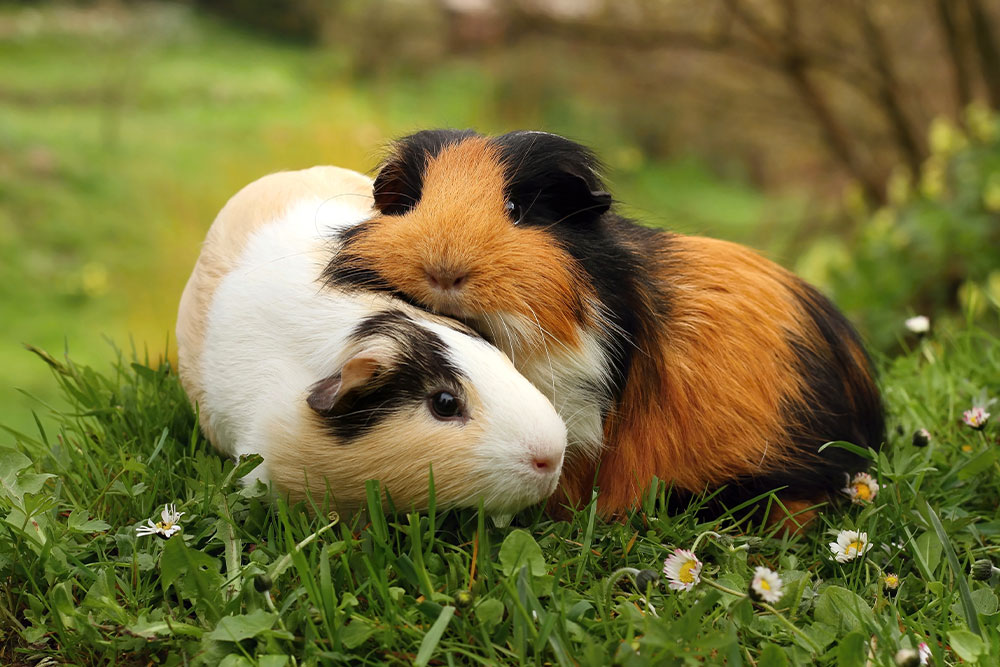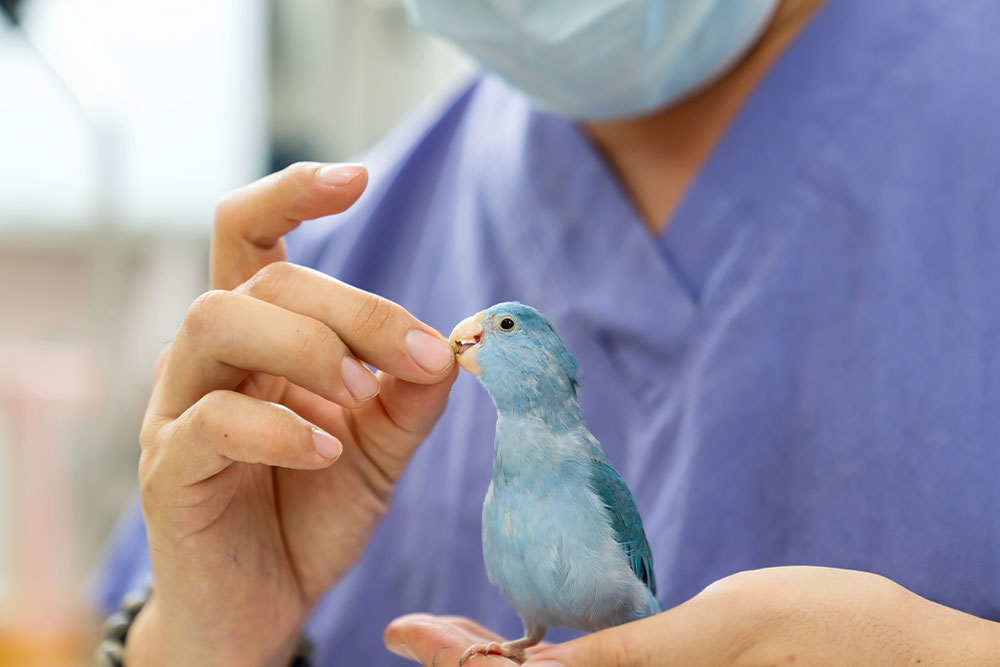Thinking of bringing home a ferret, rabbit, guinea pig, reptile, or bird? You’re not alone—exotic pets are gaining popularity thanks to their unique behaviors, vibrant personalities, and fascinating needs.
But here’s the thing: exotic doesn’t mean easy. These pets often originate from environments wildly different from a typical household. Their needs are complex, and overlooking them can lead to serious health issues or stress.
At Creature Comforts Veterinary Service in Saylorsburg, Pennsylvania, we specialize in exotic animal medicine and wellness. Whether you’ve just adopted a curious cockatiel or a slinky ferret, here’s what you need to know to provide responsible, enriching, and medically sound care.
Why Environment Matters More Than You Think
Exotic pets don’t adapt to our homes—we must adapt their homes to them. Every species has evolved in a unique ecosystem, and without access to that environment’s key features—temperature, humidity, diet, and stimulation—they can quickly become sick or stressed.
Critical Environmental Needs
- Temperature & Humidity: Reptiles and tropical birds often rely on highly specific ranges. Incorrect heat or humidity can cause respiratory infections, skin disorders, or metabolic disease.
- Light Cycles: Proper exposure to UVB light and day-night rhythms is essential for reptiles and birds. A poor photoperiod can cause bone disease, hormone imbalances, or behavior issues.
- Cage Size & Structure: Small, cramped enclosures are harmful for all species. Ferrets need tunnels and vertical space; guinea pigs require enough room to run; birds need space to fly and perch.
- Substrate & Bedding: Improper bedding can cause foot sores, allergies, or impactions. Always choose species-appropriate, dust-free materials.
- Enrichment: Mental health is essential. Without toys, puzzles, or interaction, animals can become depressed or develop destructive behaviors.
For more tips, see this Comprehensive Guide to Caring for Exotic Pets – Happy Healthy Pets.
Preventive Veterinary Care Is Essential
Many exotic pets are masters of hiding illness. By the time they show symptoms, their condition may be advanced.
What Preventive Care Should Include:
- Annual exams with an exotic animal veterinarian
- Fecal testing and bloodwork
- Dental checks (especially for rabbits and rodents)
- Nutritional consultations
- Behavioral and environmental evaluations
- Vaccinations, if applicable (ferrets require rabies and distemper)
We offer all of these services at Creature Comforts Veterinary Service.
Popular Exotic Pets and Their Unique Needs
Ferrets
Ferrets are curious, energetic, and social. They thrive on interaction but are prone to serious medical conditions.
- Diet: High-protein, meat-based diet. Ferrets are obligate carnivores.
- Housing: Multi-level cage with hammocks, toys, and litter box. Must be ferret-proofed if allowed to free roam.
- Exercise: 2–4 hours of supervised play daily.
- Common Health Issues:
- Adrenal gland disease
- Insulinoma
- Foreign object ingestion
- Resources:
Rabbits
Gentle and intelligent, rabbits require more than a cage and carrots.
- Diet: 80–90% grass hay, supplemented with leafy greens and limited pellets.
- Housing: Roomy x-pen or bunny-proofed room. Avoid wire flooring.
- Exercise: 3–5 hours daily in a rabbit-safe space.
- Common Health Issues:
- Gastrointestinal stasis
- Dental disease
- Uterine cancer (spay females early)
- Overgrown Teeth
- Resources:
Guinea Pigs
Guinea pigs are social, talkative pets—but they have specific nutritional needs.
- Diet: Hay-based with added vitamin C from vegetables or supplements.
- Housing: Spacious, solid-bottom cages with hiding areas and enrichment.
- Exercise: Daily free-roam time for physical and mental health.
- Common Health Issues:
- Scurvy (vitamin C deficiency)
- Respiratory infections
- Dental problems
- Resources:
Reptiles (e.g., Bearded Dragons, Geckos, Ball Pythons)
Each reptile species has drastically different needs. Research is non-negotiable.
- Diet: Insectivores, herbivores, or carnivores—each needs specific nutrients and supplements like calcium or D3.
- Housing: Thermogradient tanks, UVB lighting, and species-appropriate humidity.
- Exercise: Branches, rocks, and secure roaming zones in the enclosure.
- Common Health Issues:
- Metabolic bone disease
- Improper shedding (dysecdysis)
- Stomatitis (mouth rot)
- Resources:
Birds (Parakeets, Cockatiels, Conures, etc.)
Birds are highly intelligent, social animals. Improper care can lead to behavior disorders.
- Diet: A balance of pellets, fresh produce, and limited seeds.
- Housing: Large cage with multiple perches and toys. Avoid drafts and fumes.
- Exercise: Minimum of 1–2 hours out-of-cage time daily.
- Common Health Issues:
- Respiratory infections
- Feather plucking
- Obesity or malnutrition
- Resources:
Recognizing Emergency Situations
Exotic pets often hide illness until it’s advanced. Knowing the signs of distress can be lifesaving.
Call a Vet Immediately If You Notice:
- Sudden lethargy or collapse
- Refusal to eat or drink
- Labored breathing
- Bleeding or trauma
- Swelling or masses
- Abnormal droppings or urine
- Behavioral changes like hiding or aggression

Quick Guide: Setting Up for Success
| Category | Focus Areas |
| Habitat | Temperature, humidity, lighting, cage size, bedding |
| Diet | Species-specific, vitamin/mineral supplementation |
| Enrichment | Toys, foraging, interaction, species-appropriate outlets |
| Exercise | Daily free-roam or active time outside enclosure |
| Preventive Care | Annual exams, testing, dental checks, vaccinations |
| Handling | Gentle, consistent interaction adapted to species |
Need help with enclosure setup? The RSPCA Exotic Pet Resource Page offers additional housing and welfare information.
Trust Your Exotic Pet to Experts
At Creature Comforts Veterinary Service in Saylorsburg, PA, we love seeing exotic pets thrive. Whether you’re new to exotic animals or expanding your flock, we’re here to provide expert medical guidance, wellness care, and support.
Have questions or need to book a wellness exam?
Contact us here!







Leave A Comment